Continuing South on the Gold Coast
Matanchén, San Blas, Chacala and La Cruz de Huanacaxtle!
We left Mazatlan on the evening of December 28th for our sail south down the coast. We had wind but not very much. We took our time as there was no rush to get any where. We were already home and we looked forward to what the journey would bring under the stars at night. I am usually a bit nervous when we go to sea as we’re moving our home, and we don’t want to hit anything or get caught in any fishing lines. But for the most part through our experiences to date, we have learned to trust what unfolds in each moment.
One of the things I enjoy the most about our passages on the open water is the broad emptiness of the sea, especially on the surface. In other words, there is no traffic to compete with or people to negotiate with, only dolphins, birds, some fish jumping or some bioluminescence sparkling in the waves. Mostly, from our perspective, after the sun sets and before the moon (if we have one) rises, it is a vast blackness or dark void that we are staring at in front of Salacia as she is carries us forward into the unknown.
Daylight brings a different kind of experience. After many days sailing inside the Sea of Cortez, where the air and water temperatures are much cooler in the winter months, we begin to enjoy the increasing warmth as we continue south. It really enables me to sit and be comfortable and enjoy the moment when I’m not concerned about being warm. I feel a kind of freedom and contentment in the moment. I just like looking out and around me, noticing I’m not trying to make the time go by faster with a movie or podcast. I just like being awake and watching the waves go by as I also am watching to make sure no other boats are coming down our path.
We ended up sailing for about 20 hours until we got to the wide open bay of Mantanchén. We were so happy to be anchored and enjoyed a swim and a beer with a couple of cruisers who came by to welcome us before the sun began to set. We enjoyed getting to know them and their travels from the south where we were going. After the sun set, we looked forward to going to the beach the next morning and exploring the jungle and the town of San Blas.
We drove our dinghy to shore and asked one of the palapa restaurant owners to watch it for us for the day. We tipped him and promised to purchase a beer when we returned. We also handed him our garbage which is always a relief to get rid of after spending some time on the water.
We walked up the road to find the jungle tour that the guide book told us about. After being in the desert for so long, we were looking forward to the sounds of different birds and the smells of wet marsh inside the lush green jungle and hopefully we would get to see some crocodiles in action!
The tour was fun and the driver of the boat loved to go fast sometimes which was to excite the children. At times we weren’t sure if the crocodiles were real because they kept so still and had their mouths open for a very long time. We were so skeptical that on our way back we looked again to see if the same crocodiles were in the same positions. Yes, they were still in the exact same poses as we saw before! But fellow cruisers who did the same tour thought they were real from their experience of seeing some go from the shore into the water. In either case, it was wonderful to get a tour of a completely different terrain than what we grew accustomed to inside the dry deserts of Baja.
After the jungle tour we hitched a ride to the town of San Blas. We walked the streets and took in the sights of the townspeople going about their daily business. We enjoyed stretching our legs and peering into the different shops. We loved the color, simplicity, and innocence of San Blas. We walked all the way to the river and back. We stopped at a tasty taqueria for lunch before heading back to our boat. On our way back, I tried on a dress I was admiring from the road and we also stopped to pick up some banana bread that the many stores in San Blas sold to the tourists. I bought the dress and the banana bread was yummy!
The next morning we set sail for Chacala where we could spend one night. It was just enough time to check into the port captain’s office and out again. We enjoyed the beauty of the place and looked to the beach where there were a number of restaurants and a small village town. We didn’t enjoy the swell that came straight into the anchorage and it was the first time we needed to use our stern anchor to keep us pointed into the swell.
The next day we had a dinner date with Nancy and Bryan on K2 for New Years Eve in La Cruz and we didn’t want to be late! It would take us sailing into the late afternoon to get there. We really needed to be on the look out for whales as the waters heading into and inside Banderas Bay are where many whales come to birth their calves.
On our way in, after we rounded Punta de Mita, we spotted the elegant M5, the largest single masted sailboat that we also saw in La Paz, anchored near the luxurious Four Seasons Resort. It stood there looking magnificent. Punta de Mita is also a famous surfing spot.
We made it to the La Cruz anchorage by late afternoon. It was an adventure just finding our slip. The marina told us to go someplace that was not where we expected. We were suppose to be next to K2. We passed them on the way in and after realizing how far in the marina wanted us, we were afraid of the depths because our depth sounder stopped working during our passage. So we quickly turned around and headed to a spot in front of K2.
Unfortunately another boat was in that spot so we found an open one near them, which we were able to negotiate using until the spot we wanted opened up the next day. What a fiasco! But this kind of chaos is something we learned to expect in Mexico. What we do love is the flexibility Mexicans have for negotiating and we often are able to establish a win/win. Unfortunately, our dinner reservation at the marina restaurant that night with Nancy and Bryan mysteriously fell through. In Mexico and with living on the sea, we’ve learned to adjust and go with the flow. At a blink of an eye we decided to have everyone to our boat for a NYE potluck dinner! The New Year’s celebrations had officially begun!
After dinner we went to listen to live music and we happened upon this couple who played music of the 70’s. They were playing The Who when I decided to record them. I couldn’t help but get up to dance. It was really fun and afterwards we went out under the night sky to catch the fireworks at the edge of the pier and drink some fantastic champagne that our friends David and Amy on Laissez le Bon Temps Rouler (another Santa Cruz 52) shared with us all to ring in the new year. Cheers everyone!
We’ve obviously gotten behind in our posts due to a lot going on in our lives and the demands of keeping us moving. We are working to catch everyone up to the present moment where we are currently waiting for a weather window to cross the Gulf of Tehuantepec into Chiapas, Mexico the furthest point south on the border of Guatemala.
Stay tuned for additional postings very soon!





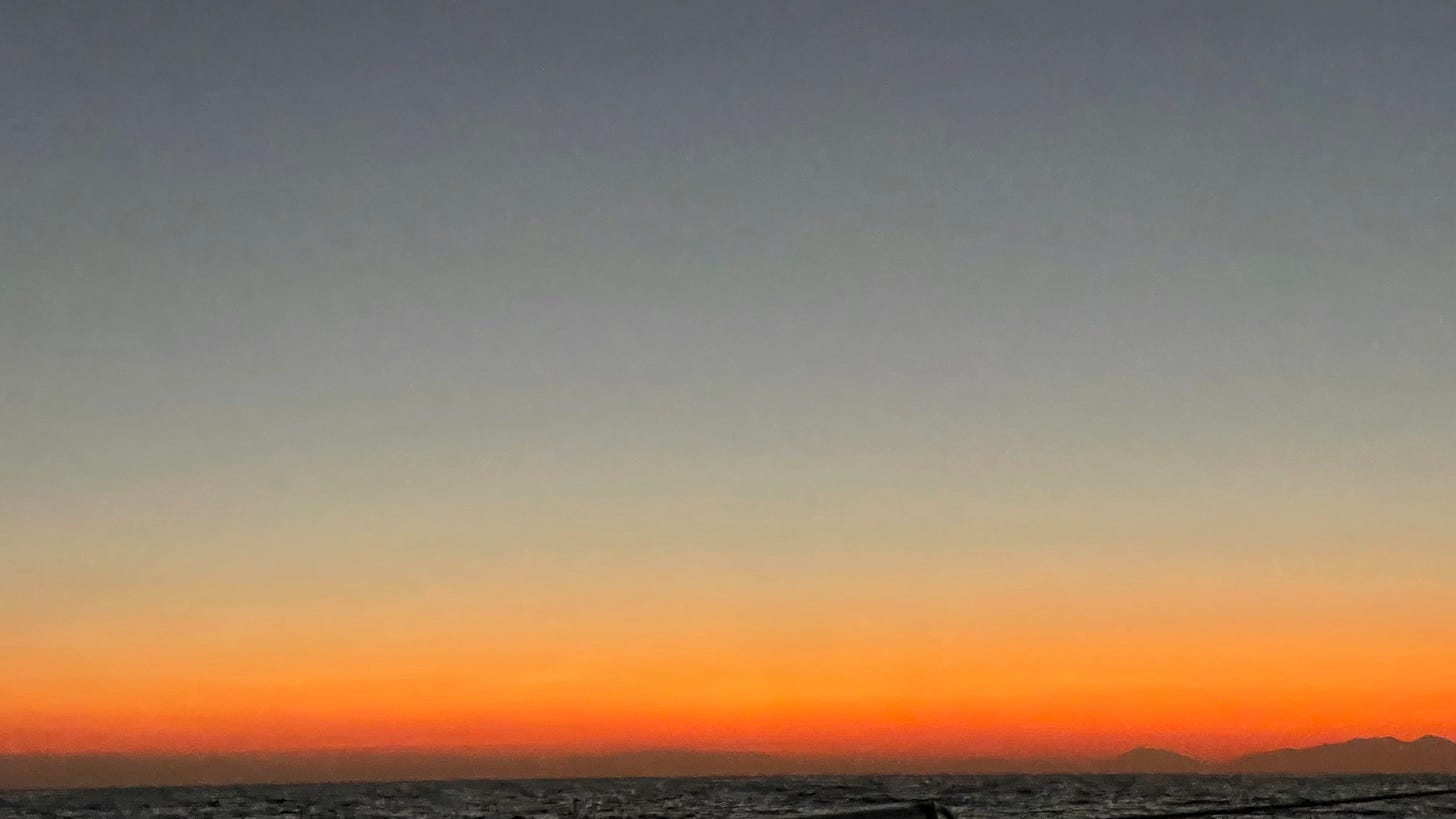
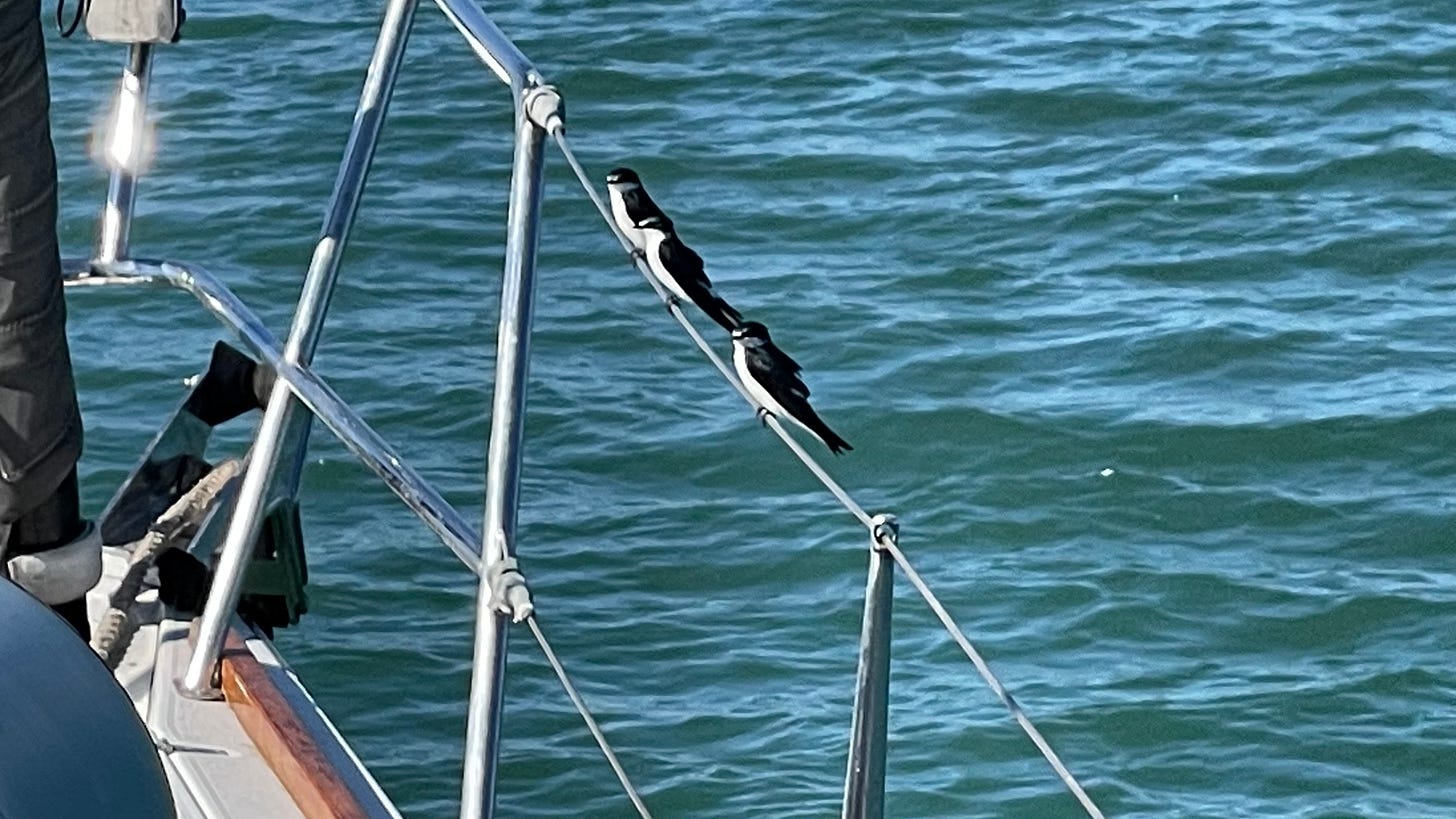


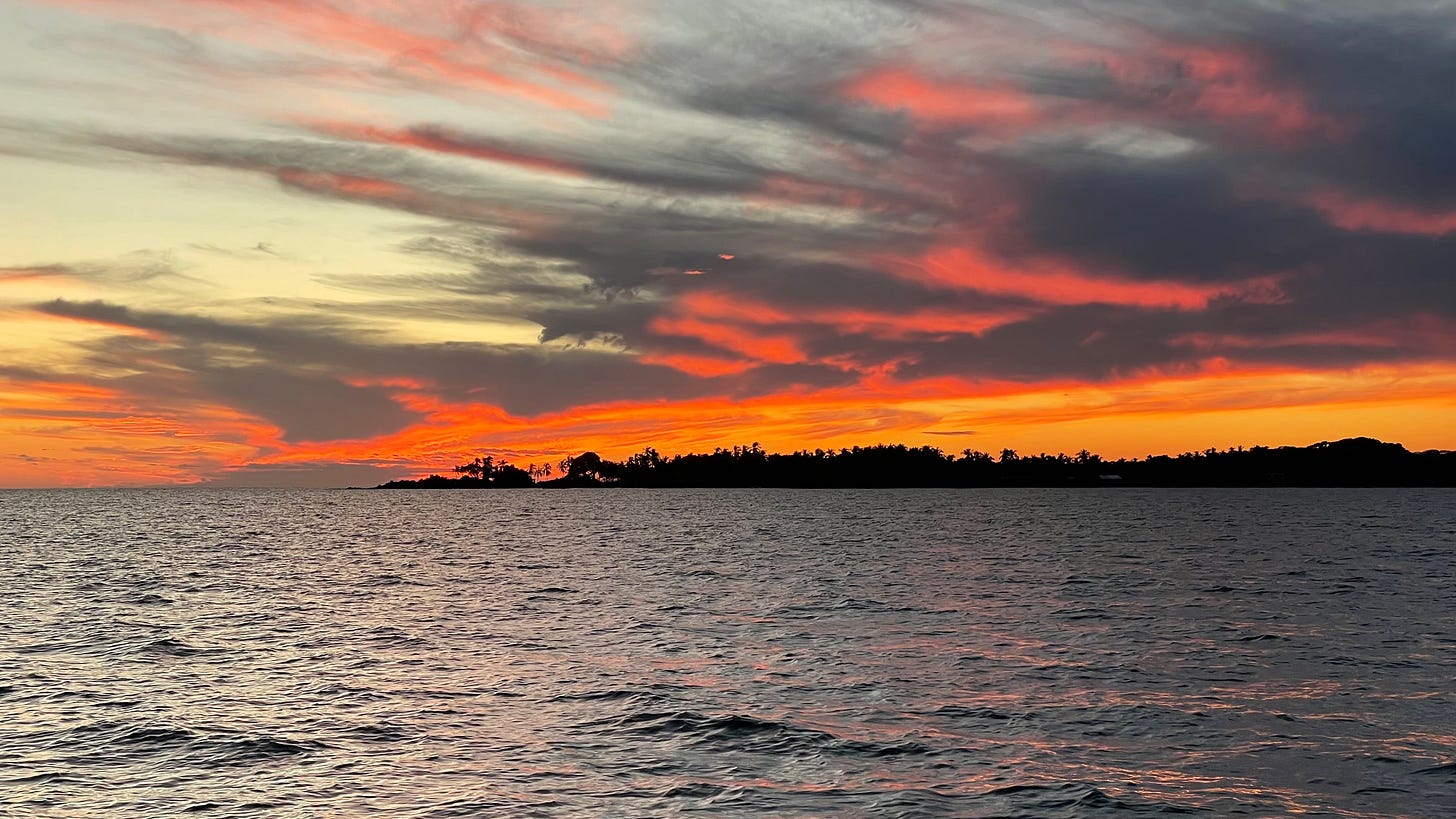
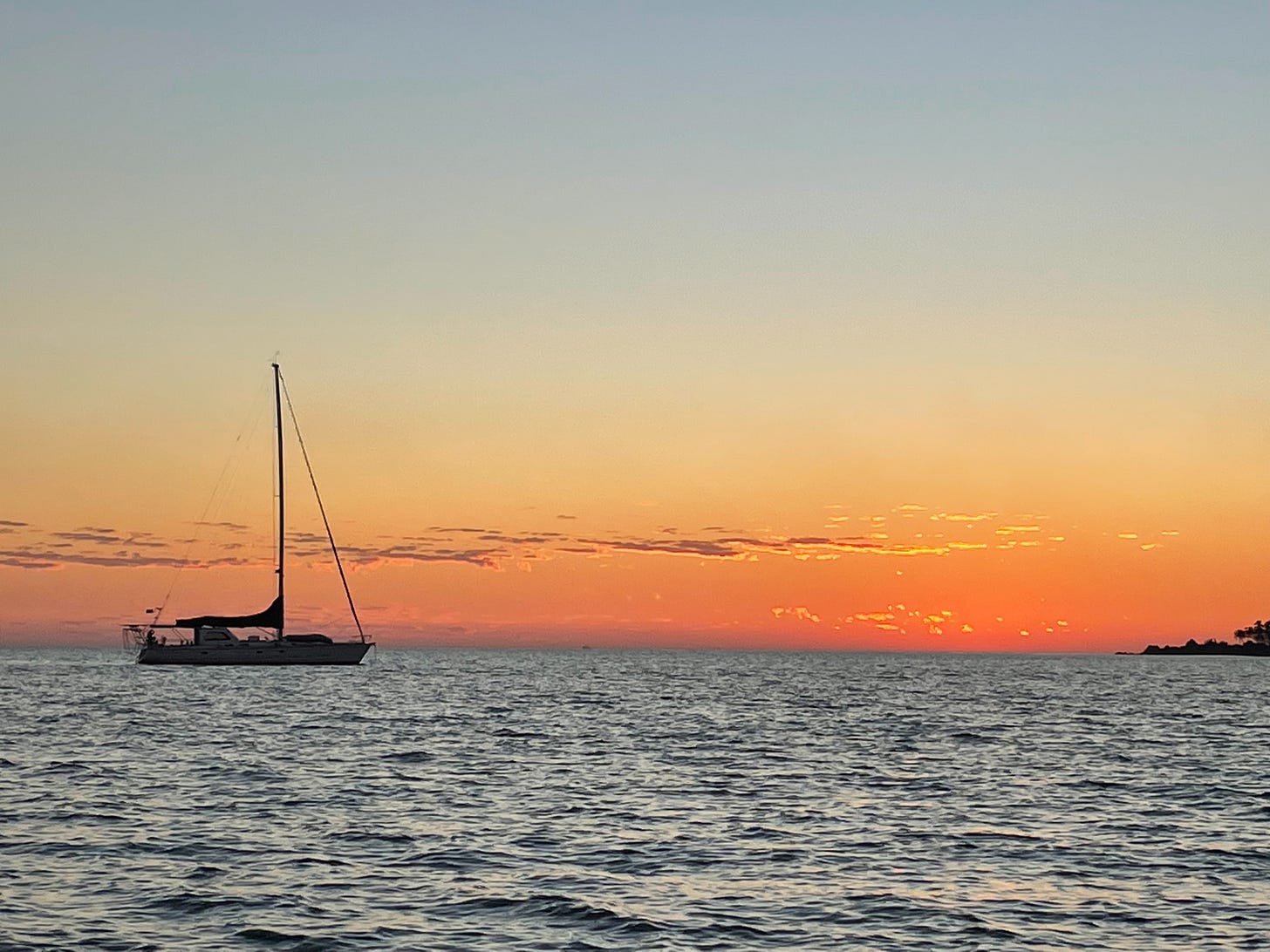
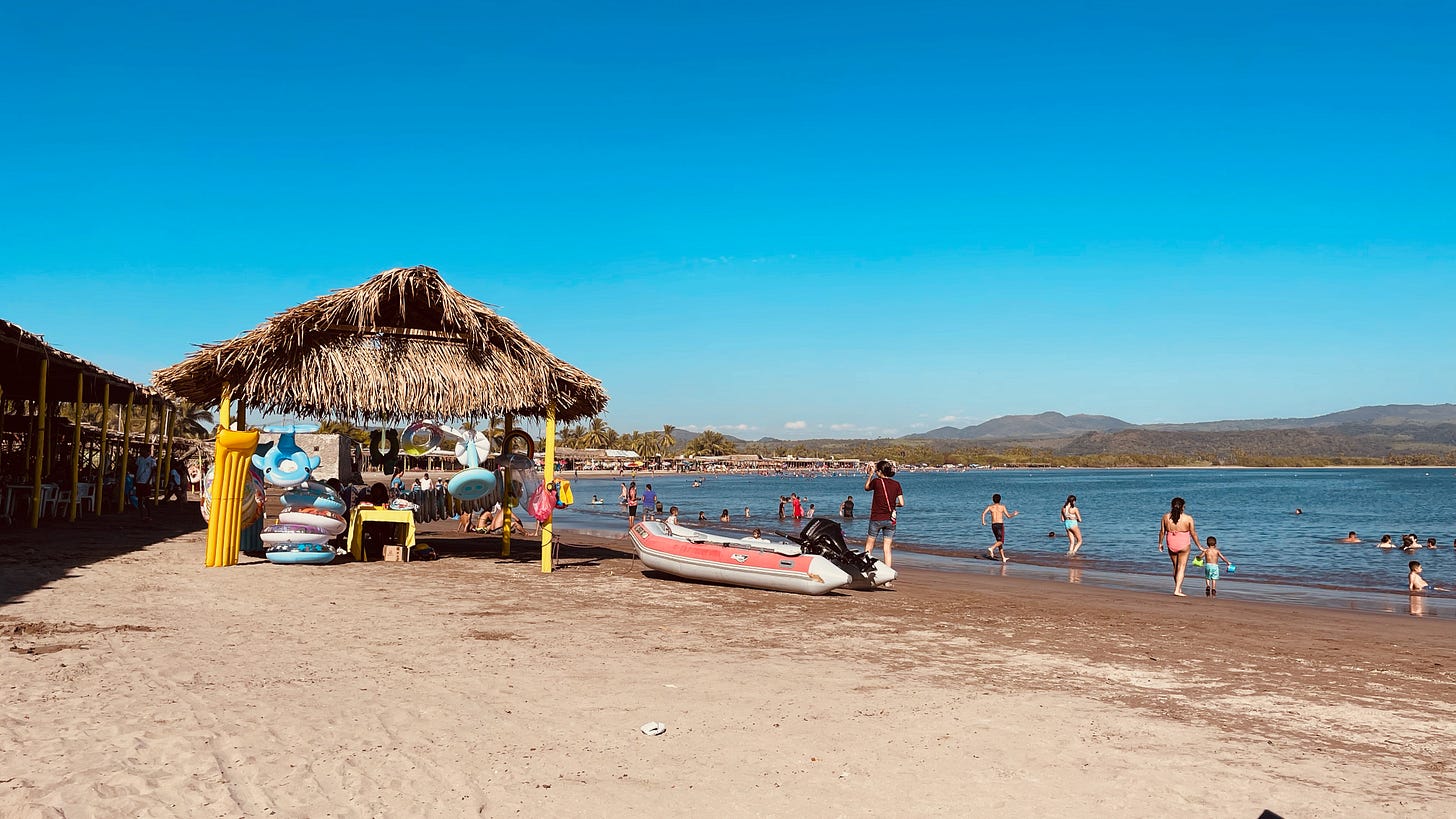




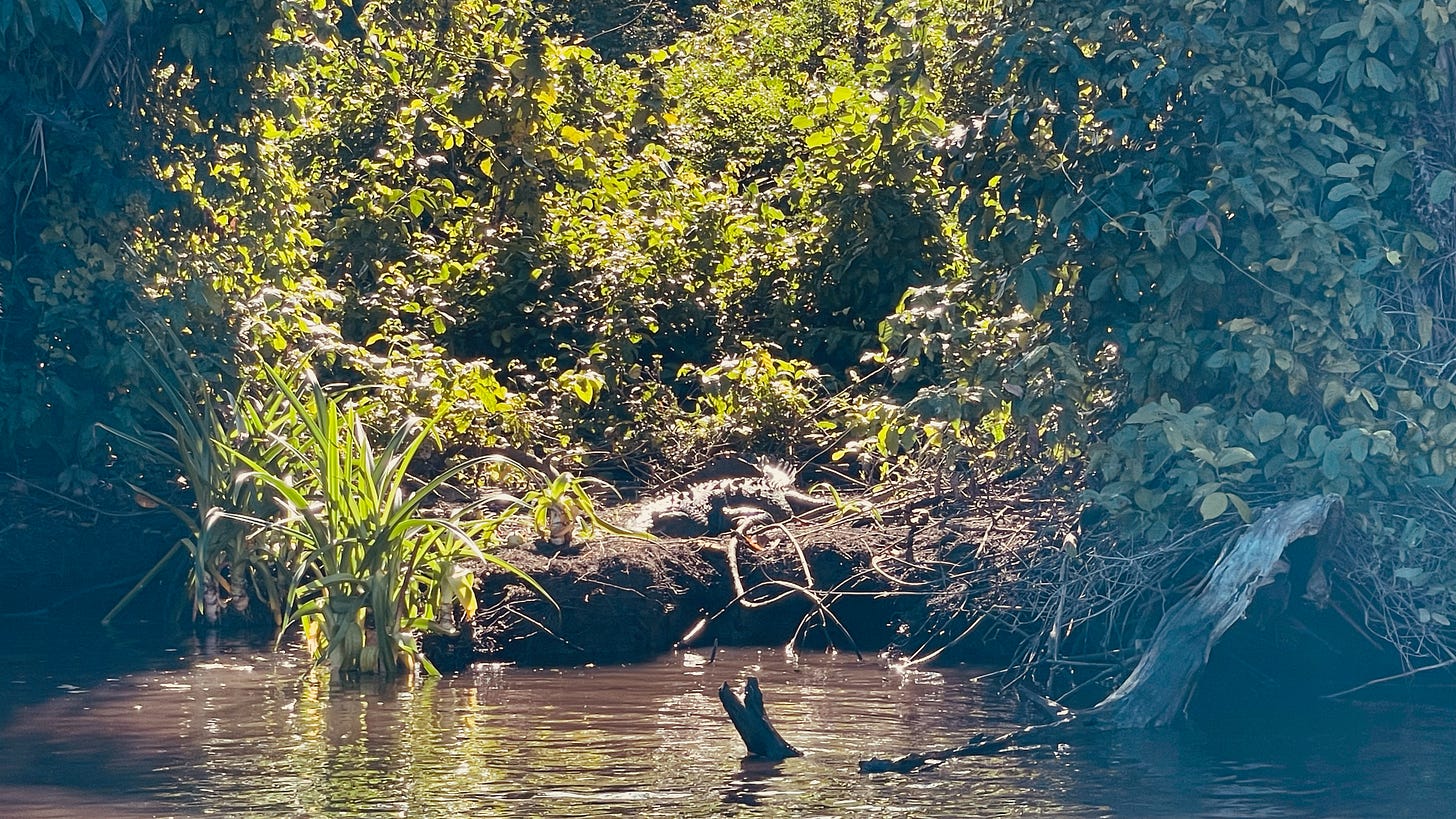
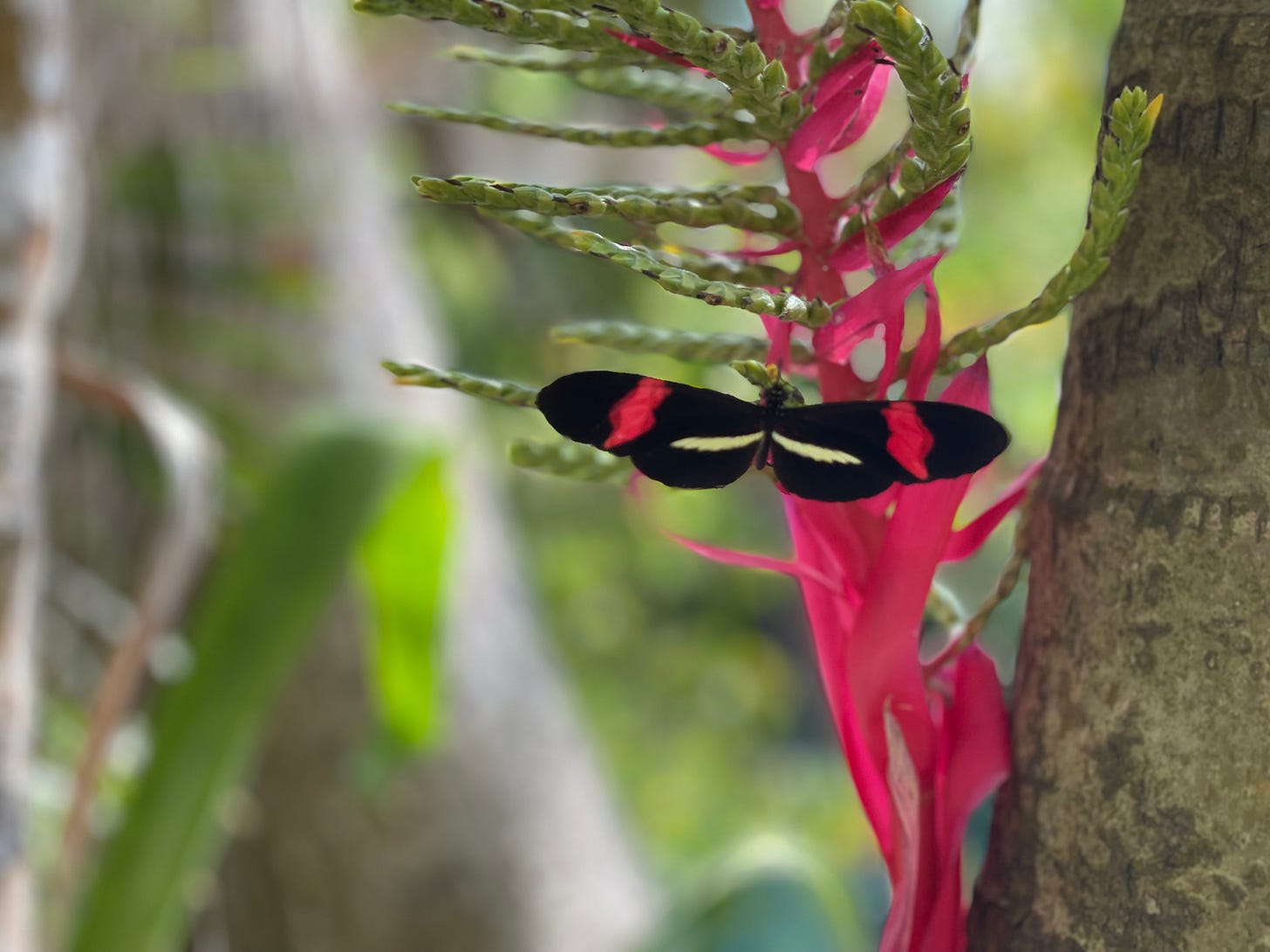
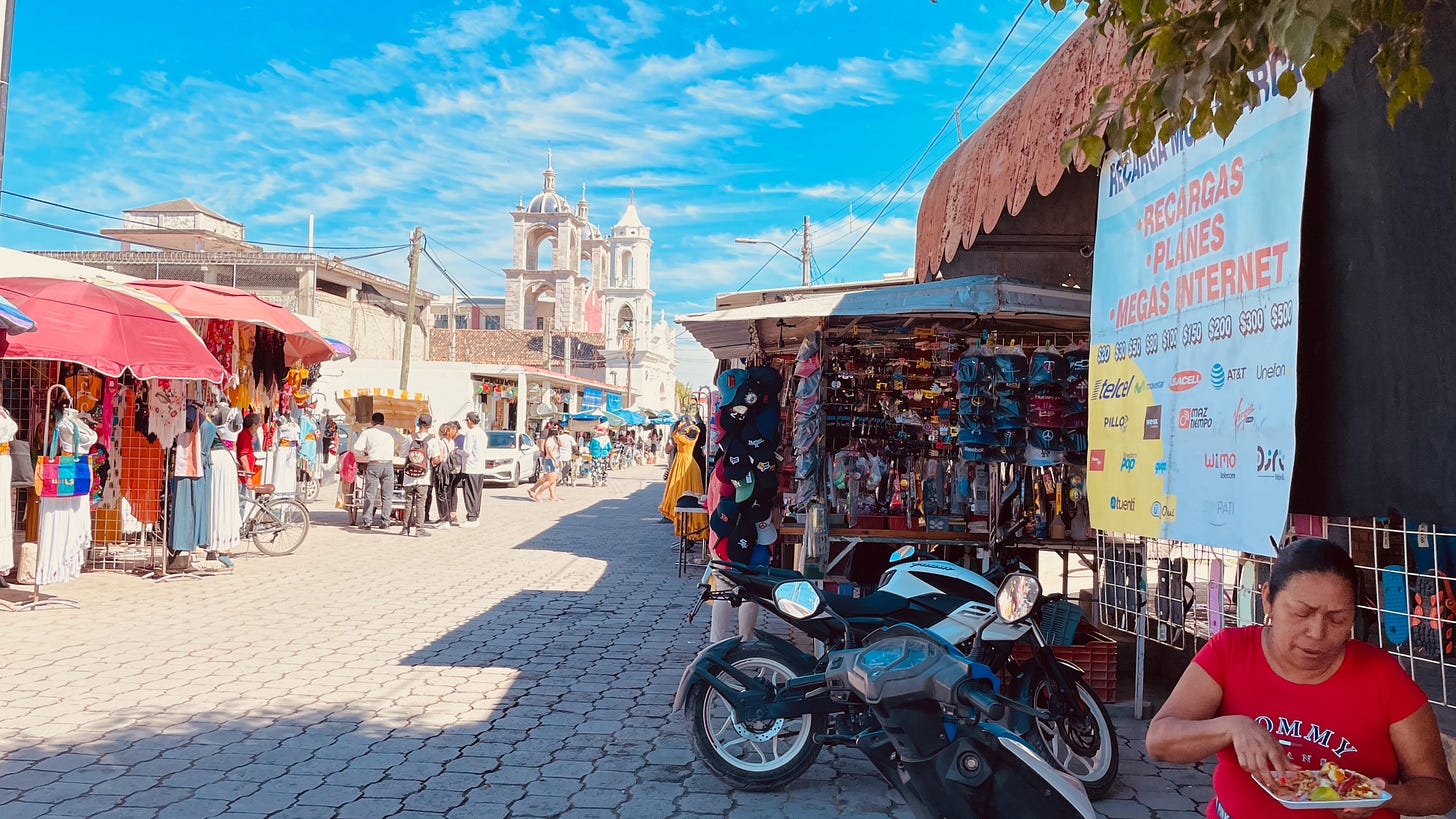
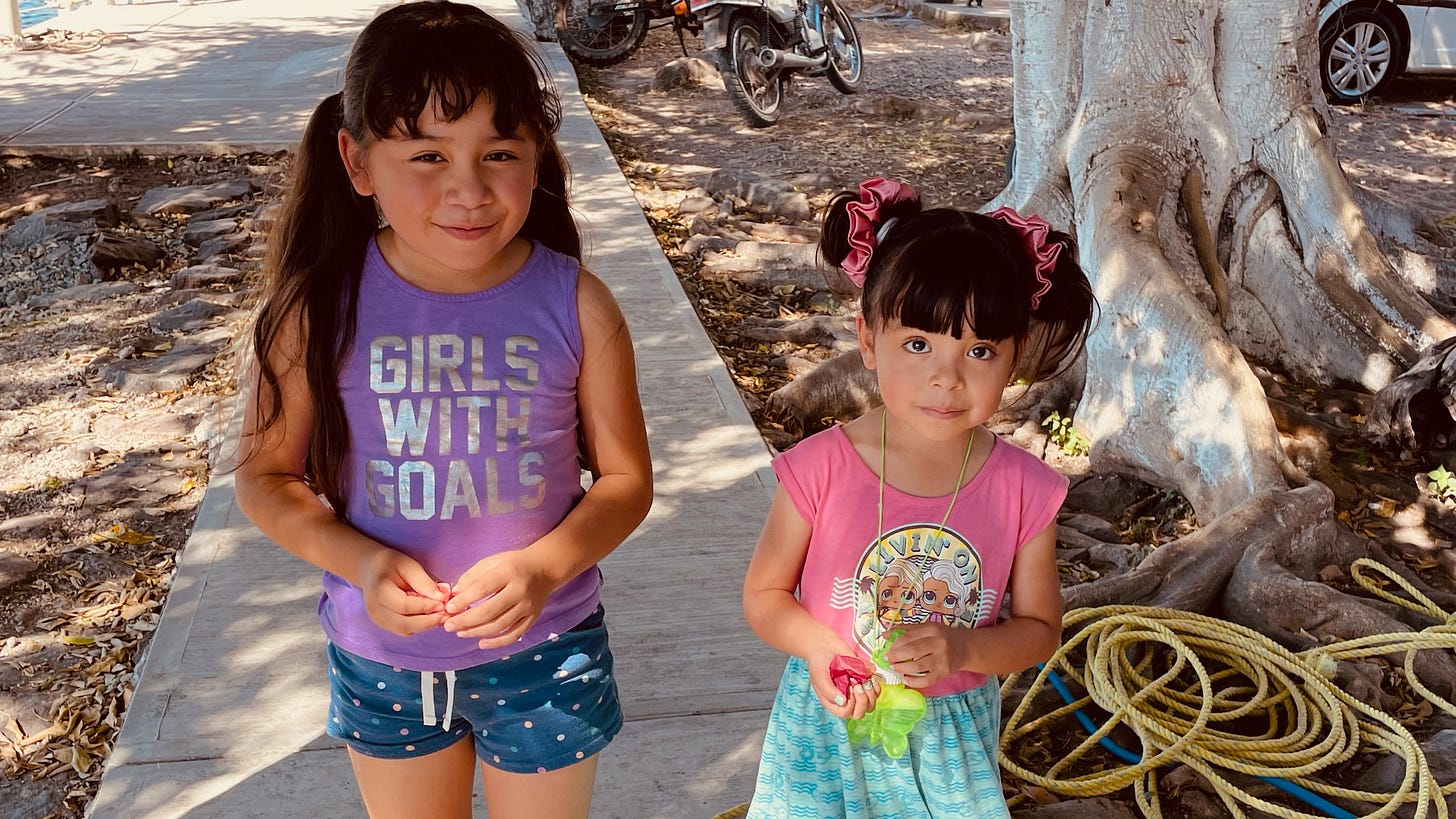

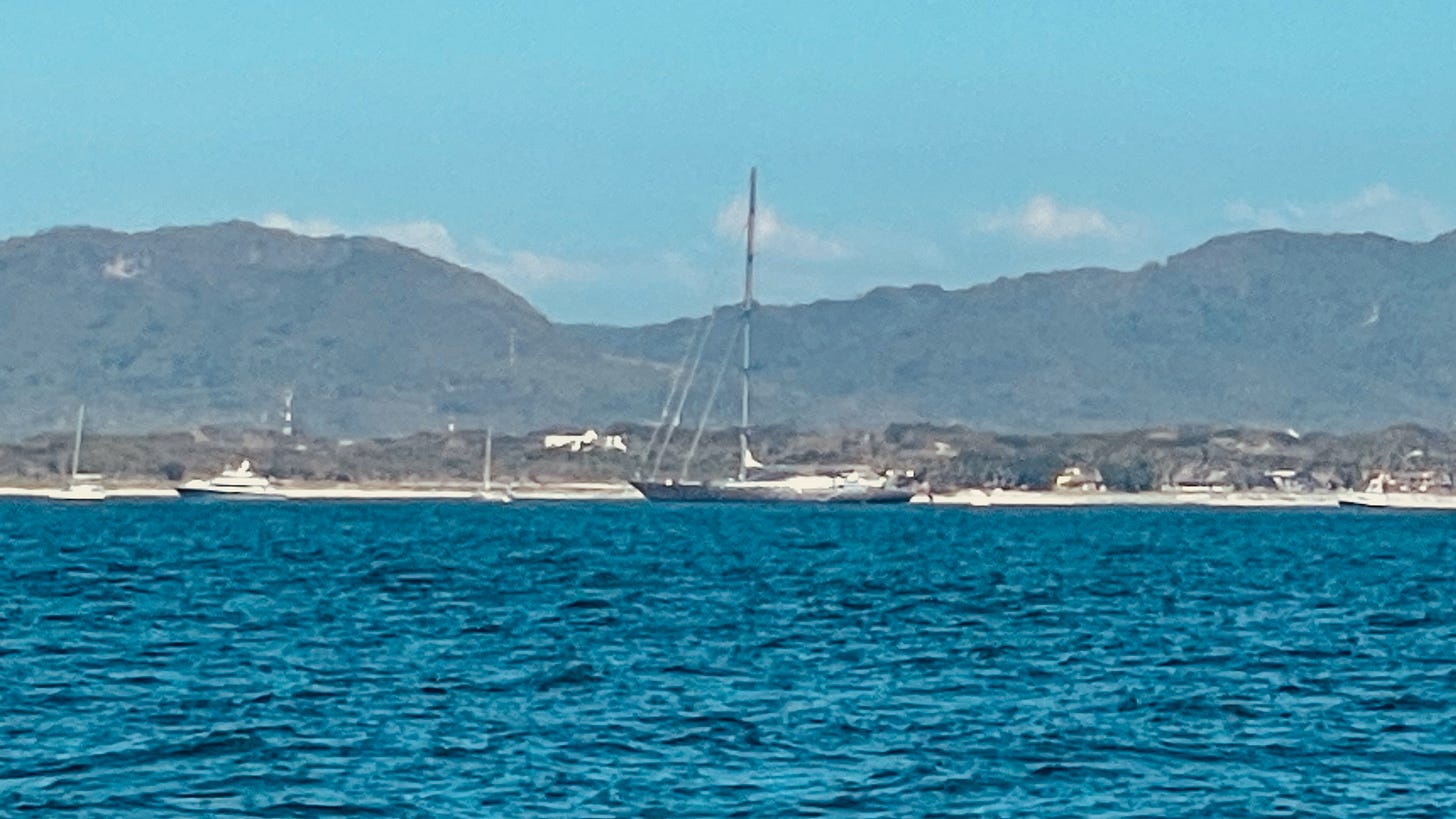

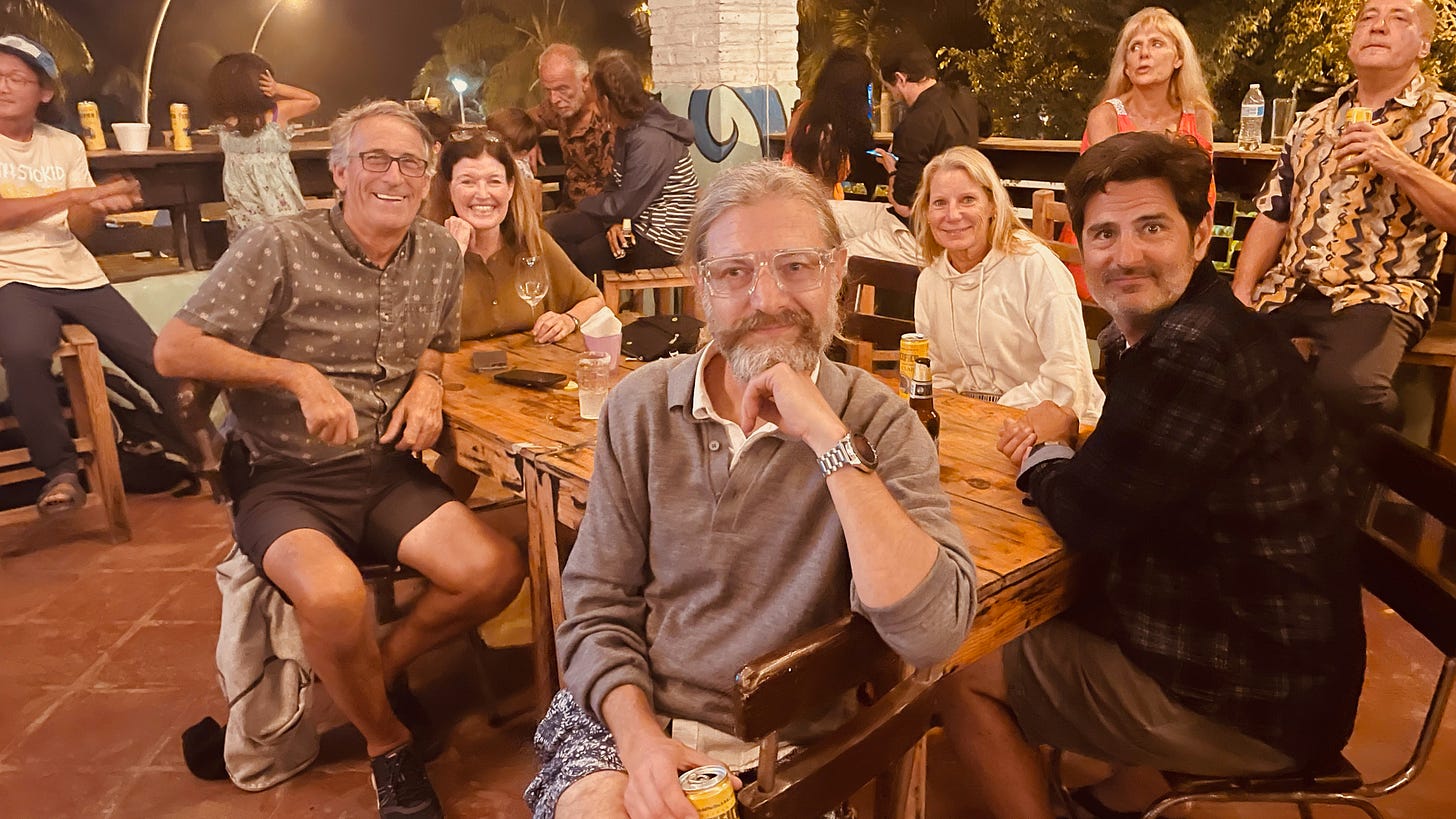
Also, that photo of Donna's face lit by the sun was so beautiful it made me want to cry.
Great post, Donna! So much in there! I did also appreciate the bit at the end that gave us a more real-time update. That's all we need. Don't stress being behind in posts.
It really feels like you are settling in to the lifestyle.
Great video of the whales! WOW!
I asked ChatGPT about the about the crocs. Here's what it said (I'll be curious to hear what Peter thinks of it):
Q: is it common behavior for a mexican crocodile to have his head out of the water with his mouth open for hours at a time without moving?
A: Crocodiles, including Mexican crocodiles, are known to bask with their mouths open to regulate their body temperature, especially in cooler weather. This behavior is often seen in crocodiles and alligators, and it's not uncommon for them to remain motionless for hours at a time while doing so.
However, it's important to note that crocodiles are wild animals and their behavior can vary depending on the situation and their environment. It's always best to observe these animals from a safe distance and not approach or disturb them in their natural habitat.